
The AIgorythm project

Playwright and actor
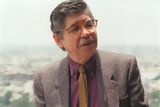
Novelist

Writer and poet

Volleyball player

Italian-Peruvian naturalist and geographer

Singer and percussionist

Last Inca emperor

Politician, former prime Minister

Journalist and TV host
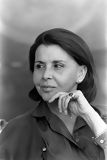
Poet

Inca warrior

Actor and comedian

Biophysicist

Poet

Doctor and researcher

Businessman, Interbank group

Journalist and writer
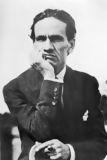
Poet and writer
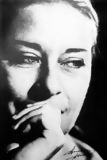
Singer and songwriter
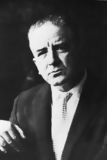
Writer

Film director, Berlin Golden Bear winner

Football player
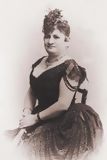
Writer and journalist
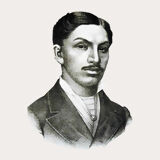
Doctor and scientist

Photograph

Chess player

Industrialist
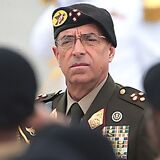
Former general

Specialist in public health

Actress and singer

Afro-Peruvian music singer

Mathematician and engineer

Indigenous chronicler

Neurologist and anthropologist

Painter

Football player
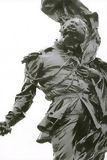
National hero, military leader

Intellectual and reformer

Chef and entrepreneur

Fashion designer

Singer-songwriter

TV presenter

Marathon runner

Indigenous Peruvian chronicler

Theologian

Former national team captain

Economist and former health minister

Inca princess

Writer and television host

Folk musician

Poet and guerrilla
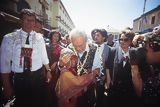
Former UN secretary-general

Chef, known for fusion cuisine

Football player

Peruvian aviation pioneer

Poet and artist
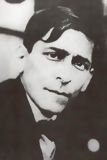
Marxist philosopher and writer

Industrialist and businessman
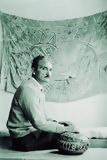
Novelist and ethnologist

Painter and muralist

Opera tenor

Fashion designer

Cardinal of Lima

Peruvian tennis player

Football coach

Leader of the indigenous rebellion
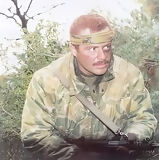
Military hero

Latin singer
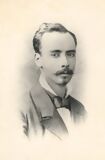
War of the Pacific hero

The youngest mother in history

Politician
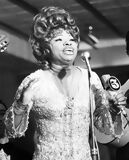
Creole music singer

Tennis player
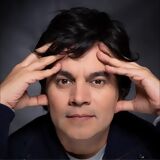
Musician

Writer and politician

Politician and founder of the Christian Democratic Party

Founder of Sodalitium Christianae Vitae

Archaeologist and anthropologist
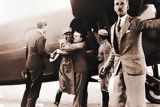
Military leader and politician

Television host
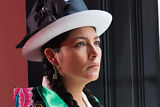
Actress and singer

Contemporary sculptor

Women’s rights activist

Beauty queen

Astrophysicist

Heroine of independence

Mathematician and archaeologist

Historian and anthropologist
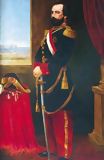
Military figure and historical figure

Fashion photographer
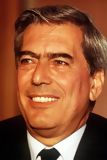
Writer, Nobel Prize in Literature, Politician

Revolutionary leader

Environmental activist

Leader of the indigenous rebellion

Musician from Gaia band
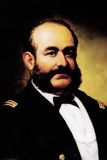
War hero
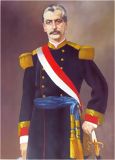
Military leader and politician

Chef, known for Nikkei cuisine

Volleyball coach and former player

Environmental activist

Television personality

Writer
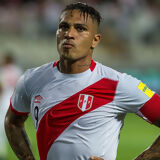
Football player

Epidemiologist and former health Minister

Inventor and aerospace pioneer

Soldier and inventor
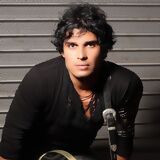
Rock singer

Chef and co-owner of Central restaurant

Painter

Football player

TV presenter and actress
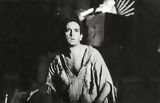
Actor
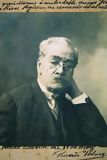
Writer and historian

Journalist and lawyer

Archaeologist, founder of Caral site
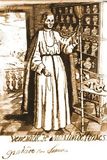
Monk and Saint
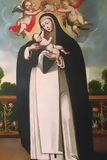
Saint, patron of Latin America

Physicist and engineer

World champion surfer

Actress

Oncologist

Singer, Latin Grammy winner

Former mayor of Lima

Singer

Actress

Former football player

Painter
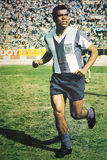
Former football player

Painter

Inca leader

Archbishop, saint
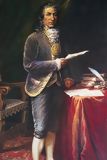
Leader of the indigenous rebellion

Revolutionary indigenous leader

Diplomat and intellectual

Sculptor and painter
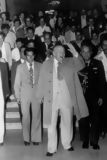
Political leader, founder of APRA

Lawyer and Former prime minister

Chef of Central restaurant
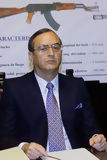
Former head of secret services

Popular singer

Fashion designer

Exotic music singer
Héctor Eduardo Chumpitaz Gonzáles, born on April 12, 1943, in Cañete, Peru, is one of the most iconic figures in South American football history. Nicknamed "El Capitán de América" (The Captain of America), Chumpitaz excelled as a central defender and captain of the Peruvian national team and several prestigious clubs. His leadership, defensive solidity, and tactical intelligence made him a legend, not only in Peru but throughout Latin America. Chumpitaz is considered one of the best defenders in the history of football and a role model for future generations.
Héctor Chumpitaz was born in Cañete, a small town about 150 kilometers south of Lima. He grew up in a humble environment, but his passion for football manifested from a young age. He started playing street football before joining local youth teams. His talent and natural ability to organize the defense quickly attracted the attention of scouts.
In 1964, at the age of 21, Chumpitaz made his professional debut with Universitario de Deportes, one of Peru’s most prestigious clubs. From the start, he impressed with his ability to read the game, his strength in aerial duels, and his skill in distributing the ball from the back. His natural charisma and leadership on the field quickly earned him the captain's armband, a role he would hold for much of his career.
Chumpitaz made his debut for the Peruvian national team in 1965, at the age of 22. He quickly became an undisputed leader of the defense and was named captain of the national side. Under his leadership, Peru experienced one of its most glorious periods, achieving historic success on the international stage.
The highlight of Chumpitaz's international career came in 1975 when Peru won its second Copa América title. Chumpitaz was a key figure throughout the tournament, guiding his team with his leadership and impeccable defensive performances. This victory solidified his status as "El Capitán de América," a title reflecting his influence not only in Peru but across South American football.
Héctor Chumpitaz was also a crucial player in Peru’s World Cup campaigns. He participated in the 1970 World Cup in Mexico and the 1978 World Cup in Argentina. In the 1970 tournament, Peru reached the quarterfinals, marking a historic achievement for the nation. Under Chumpitaz's leadership, the team impressed the world with its attacking style and solid defense, though their journey ended at the hands of Brazil, who would go on to win the tournament.
In 1978, Peru once again reached the quarterfinals with Chumpitaz as captain. Although the team did not progress further, Chumpitaz’s reputation as a world-class leader and defender continued to grow. His ability to inspire his teammates and his leadership on the field made him a respected captain, both among his peers and opponents.
Héctor Chumpitaz spent much of his club career playing for two of Peru’s biggest teams: Universitario de Deportes and Sporting Cristal. With Universitario, he won several domestic league titles and participated in memorable campaigns in the Copa Libertadores, South America’s most prestigious club tournament. His ability to score crucial goals, despite playing as a central defender, further contributed to his fame. Chumpitaz was a modern defender, capable not only of protecting his goal but also of creating opportunities for his team in attack.
In 1972, he left Universitario to join Sporting Cristal, where he continued to shine and win titles. His time at Sporting Cristal was marked by a period of domestic dominance, with multiple league championships and strong performances in the Copa Libertadores. His longevity at the highest level and his ability to remain competitive over the years speak to his professionalism and commitment to the sport.
Héctor Chumpitaz was known for his versatile playing style as a central defender. He was a natural leader on the field, capable of organizing the defense and commanding his teammates with authority. His tactical intelligence allowed him to read the game ahead of time, intercepting passes and breaking up opposition attacks with great efficiency.
In addition to his defensive skills, Chumpitaz was also a valuable asset in attack. Possessing a powerful shot, he regularly scored goals from set pieces, particularly from free kicks and corners. His ability to combine defensive and offensive qualities made him a complete defender, ahead of his time.
Héctor Chumpitaz’s legacy extends far beyond the trophies and titles he won throughout his career. He is regarded as one of the best defenders in football history, alongside legends such as Franz Beckenbauer and Bobby Moore. His natural leadership, ability to inspire his teammates, and professionalism made him a role model for future generations of Peruvian and South American footballers.
After retiring as a player, Chumpitaz continued to contribute to Peruvian football as a coach and mentor. His influence on the sport in his country remains strong today, both at the club level and within the national team. The respect he commands, both in Peru and abroad, is a testament to the lasting impact he has had on football.
Héctor Chumpitaz is undoubtedly a legend of Peruvian and South American football. His exemplary career as a player, marked by success at both the club and national team levels, earned him a place among the greatest in football history. As "El Capitán de América," he led his team with pride, discipline, and unwavering determination, leaving a legacy that continues to inspire footballers worldwide.
Whether through his performances in club football, his achievements in the Copa América, or his World Cup campaigns, Chumpitaz will forever be remembered in the annals of football history. His name is synonymous with leadership, class, and success, and he is rightfully celebrated as one of the best defenders of all time.